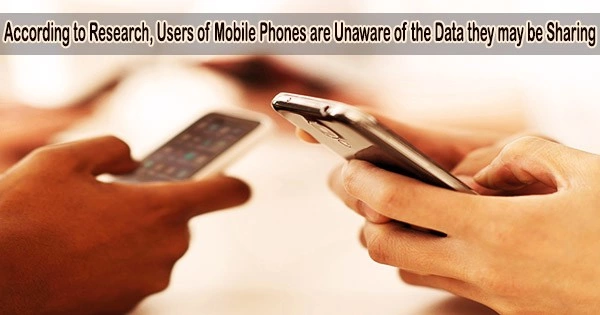According to recent research from the University of Bath’s School of Management, customers frequently misunderstand privacy and security features that are intended to provide them more control over how their data is shared by smartphone apps.
In the study, 43% of smartphone users were unsure or perplexed about what app tracking meant. People frequently misunderstood the intent behind tracking, believing that it was essential to how the app worked or that it would enhance the user experience.
Companies to deliver targeted advertising to smartphone users use app tracking.
When iPhone users open an app for the first time, a pop-up window asks if they agree to the app developer tracking their activity across other apps. They can choose either ‘Ask App Not to Track’ or ‘Allow’, as introduced by Apple’s App Tracking Transparency framework in April 2021. Android users must access tracking consent via their phone settings.
If users choose not to be tracked, the company cannot follow their usage of the apps and websites on their devices, and the information collected cannot be utilized for targeted advertising or shared with data brokers.
The most frequent misconception (24%) was that tracking meant disclosing the device’s precise location rather than monitoring how users interact with apps and websites. People assumed that since their location was crucial to the operation of the app, they had to consent to tracking while using health and fitness applications or food delivery and collection services like Deliveroo.
This research further exposes how most consumers are not aware of how their digital data is being used. Every day millions of us share information with tech companies and while some of this data is essential for these services to function correctly, other data allows them to generate money from advertising revenue. For example, Meta predicted that they would lose $10Billion from people rejecting tracking.
Professor David Ellis
The analysis found no correlation between participants’ concerns about privacy in their daily lives and a lower rate of tracking acceptance, even though just over half of participants (51%) stated they were worried about privacy or security, including the security of their data after it had been gathered.
“We asked people about their privacy concerns and expected to see people who are concerned about protecting their privacy allowing fewer apps to track their data, but this wasn’t the case,” said Hannah Hutton, postgraduate researcher from the University of Bath’s School of Management. “There were significant misunderstandings about what app tracking means. People commonly believed they needed to allow tracking for the app to function correctly.”
“Some of the confusion is likely to be due to lack of clarity in wording chosen by companies in the tracking prompts, which are easy to misinterpret. For example, when ASOS said ‘We’ll use your data to give you a more personalized ASOS experience and to make our app even more amazing’ it’s probably no surprise that people thought they were opting for additional functionality rather than just more relevant adverts.”
The statement that app developers can use to describe why they are asking for tracking permission is optional, even though the main content of the prompt for app tracking consent is standard. This allows for the intentional or unintentional disclosure of inaccurate or misleading information.
Other misconceptions included believing that consenting to sharing for health apps (such as period tracking apps) would mean private data being shared, or that denying tracking would remove adverts from the app.
The study, Exploring User Motivations Behind iOS App Tracking Transparency Decisions, is published in the proceedings of The ACM CHI Conference on Human Factors in Computing Systems and was presented at the CHI23 conference in Hamburg, Germany (23-28 April). It is believed to be the first scholarly examination of the choices individuals make in response to monitoring requests.
The researchers collected data on the tracking decisions of 312 study participants (aged 18 to 75) and analyzed reasons for allowing or rejecting tracking across a range of apps, including social media, shopping, health, and food delivery.
David Ellis, a Professor of Behavioural Science and co-author, added: “This research further exposes how most consumers are not aware of how their digital data is being used. Every day millions of us share information with tech companies and while some of this data is essential for these services to function correctly, other data allows them to generate money from advertising revenue. For example, Meta predicted that they would lose $10Billion from people rejecting tracking.”
“While people are now familiar with the benefits of having PIN numbers and facial recognition to protect our devices, more work needs to be done so people can make transparent decisions about what other data is used for in the digital age.”





